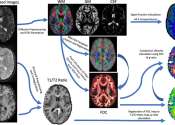Perinatal substance use may shape how strongly mothers feel toward infants
Substance use during pregnancy and postpartum may impact areas of the brain associated with what psychologists and neuroscientists call "affective empathy," or the emotional response experienced as a result of others' emotions, ...
Apr 25, 2024
0
0









